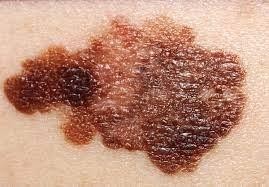A nurse is developing a plan of care for a client who has obsessive-compulsive disorder.
Which of the following interventions should the nurse include?
Allow the client autonomy in scheduling daily activities.
Administer an antipsychotic medication to the client.
Provide ample time for rituals in the early treatment stages.
Initiate implosion therapy for the client.
The Correct Answer is A
Choice A rationale:
Clients with obsessive-compulsive disorder (OCD) often benefit from maintaining control over their daily activities and schedules. Allowing the client autonomy in scheduling activities can help them manage their symptoms while feeling in control.
Choice B rationale:
Antipsychotic medications are not the first-line treatment for OCD, and their use would depend on the presence of other coexisting conditions.
Choice C rationale:
Providing ample time for rituals may inadvertently reinforce the compulsive behaviors associated with OCD. Cognitive-behavioral therapy (CBT) with exposure and response prevention is the recommended treatment for OCD.
Choice D rationale:
Implosion therapy, also known as flooding, exposes the client to anxiety-provoking stimuli in a controlled and safe environment. However, it is not typically the first-line treatment for OCD and requires careful implementation under the guidance of a mental health professional.
Nursing Test Bank
Naxlex Comprehensive Predictor Exams
Related Questions
Correct Answer is C
Explanation
Choice A rationale:
Exhibiting grief response behaviors may indicate the client is processing emotions related to the assault but may not necessarily indicate effectiveness of the plan of care.
Choice B rationale:
Stating a desire for revenge suggests unresolved anger and is not indicative of effective coping or progress.
Choice C rationale:
A sign of effectiveness in the plan of care for a client who has experienced sexual assault is the client's willingness to seek guidance and support in making important life decisions. This indicates a sense of trust in the nurse and a desire to move forward in a positive way.
Choice D rationale:
Demonstrating an increase in regressive behavior might indicate emotional distress but does not necessarily indicate effectiveness of the plan of care.
Correct Answer is D
Explanation
Choice A rationale:
Radiation therapy is not typically the primary method of treatment for melanoma. Surgical excision and other therapies are often utilized.
Choice B rationale:
Metastasis in melanoma generally occurs from the outer layers of the skin to deeper levels and eventually to other parts of the body.
Choice C rationale:
Specific genetic mutations, such as mutations in the BRAF gene, are associated with an increased risk of developing melanoma.
Choice D rationale: Melanoma is a highly metastatic form of skin cancer that can spread quickly to other parts of the body. Early diagnosis and treatment are crucial to improve outcomes.

Whether you are a student looking to ace your exams or a practicing nurse seeking to enhance your expertise , our nursing education contents will empower you with the confidence and competence to make a difference in the lives of patients and become a respected leader in the healthcare field.
Visit Naxlex, invest in your future and unlock endless possibilities with our unparalleled nursing education contents today
Report Wrong Answer on the Current Question
Do you disagree with the answer? If yes, what is your expected answer? Explain.
Kindly be descriptive with the issue you are facing.
